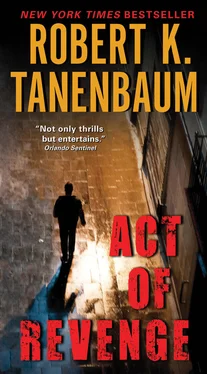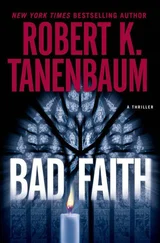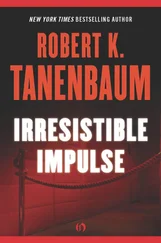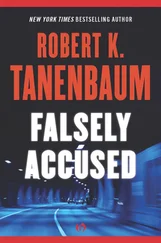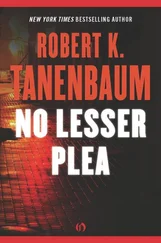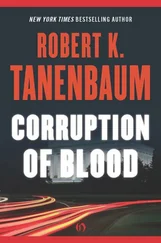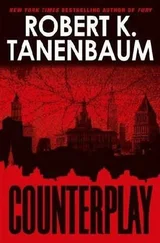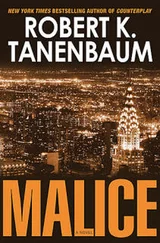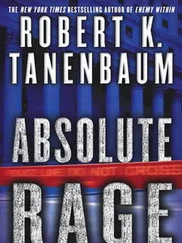Robert Tanenbaum - Act of Revenge
Здесь есть возможность читать онлайн «Robert Tanenbaum - Act of Revenge» весь текст электронной книги совершенно бесплатно (целиком полную версию без сокращений). В некоторых случаях можно слушать аудио, скачать через торрент в формате fb2 и присутствует краткое содержание. Год выпуска: 0101, Издательство: HarperCollins, Жанр: Криминальный детектив, на английском языке. Описание произведения, (предисловие) а так же отзывы посетителей доступны на портале библиотеки ЛибКат.
- Название:Act of Revenge
- Автор:
- Издательство:HarperCollins
- Жанр:
- Год:0101
- ISBN:нет данных
- Рейтинг книги:4 / 5. Голосов: 1
-
Избранное:Добавить в избранное
- Отзывы:
-
Ваша оценка:
- 80
- 1
- 2
- 3
- 4
- 5
Act of Revenge: краткое содержание, описание и аннотация
Предлагаем к чтению аннотацию, описание, краткое содержание или предисловие (зависит от того, что написал сам автор книги «Act of Revenge»). Если вы не нашли необходимую информацию о книге — напишите в комментариях, мы постараемся отыскать её.
Act of Revenge — читать онлайн бесплатно полную книгу (весь текст) целиком
Ниже представлен текст книги, разбитый по страницам. Система сохранения места последней прочитанной страницы, позволяет с удобством читать онлайн бесплатно книгу «Act of Revenge», без необходимости каждый раз заново искать на чём Вы остановились. Поставьте закладку, и сможете в любой момент перейти на страницу, на которой закончили чтение.
Интервал:
Закладка:
As for the rest of his equipage, Karp was dressed at that moment in a natural shoulder, three-button, navy tropical wool suit with the faintest of pinstripes, one virtually identical to the other nine suits he owned (half winter- and half summer-weight). With this he wore a plain-collar white silk shirt and a tie that Richard Nixon might have rejected as being a shade too understated, and a pair of black cap-toe wing tips. Except for the tie, everything visible he had on was custom-made and of the highest possible quality, which bought at retail would have set him back well over five grand. He had spent nothing like that, however, since the clothing and shoes came from Chen connections in Hong Kong and Taipei, who had supplied it at cost or less. Thus did Karp reap the benefits of being, through marriage, an honorary Chen, and therefore he read with more than usual concentration the story of the murders in the Asia Mall, and not without a sharp pang of fear, since he knew that the murder scene was one of the usual hangouts of his little girl. He parked the tabloid in his usual waste can and walked into Foley Square.
Two centuries ago, Foley Square had been Collect Pond, a body of water that early New Yorkers had soon converted into an open sewer. Hardly had the colonial filth jelled when they built the city jail on it, which sank into the mire, and then they built another one on top of it, the infamous Tombs. The four towers that Karp saw as he walked through the tiny park with its incomprehensible orange steel sculpture was the third grim structure on the site, and no longer the main New York jail, although one tower was still used as a holding facility for prisoners undergoing justice and was still called the Tombs. It was a gray and hulking fascist ziggurat, and Karp, who had slight interest in architecture, rather liked it. He thought that, considering what transpired within, a pretty building would have been an obscenity.
There was an entrance on the south side of the Criminal Courts building reserved for its staff, but Karp ordinarily preferred to come in through the main door facing Foley Square. Here he was exposed to the sentiments carved in marble on the sides of the entranceway, and, as a ritual, he read one or two of them, like a tourist. This morning it was Why should there not be a patient confidence in the ultimate justice of the people , which always gave Karp a chuckle, since what was just on the other side of the swinging glass doors was a pretty good argument why not. The lobby here had been known since the late sixties as the Streets of Calcutta. When someone in the D.A. said, “Hey, I saw Bernie Popkin in Calcutta yesterday,” they referred not to the Asian metropolis but to this melancholy hallway, murmurous with sighs, cries of outrage, confidential whispers, and other noises associated with a criminal-justice apparatus rusted and crumbling like the West Side Highway, and suffused, not unlike the actual Calcutta, with a peculiar and diagnostic odor, constructed of old paint, musty papers, disinfectant, the snack bar’s grease-and-burnt-coffee, the expensive cologne of rich lawyers, the cheap scent of whores, and the immemorial effluvium of the unwashed poor.
This was, of course, Karp’s native air, and a tonic; breathing it in and rubbing against Calcutta was the reason he took this route. In his present job he spent a lot of time handling clean paper and harrying the neatly dressed. He felt his edge slowly dulling and wanted grit, and this walk was, most days, all he would get of it. He passed the several thick lines of people waiting to traverse the guard station and its metal detectors and went toward the left side of the entryway, where there was a special gate for the anointed. People were lined up there, too, showing their passes. Karp did not show his pass, because the guard and all the other court officers knew him by sight. This was not hard to do, because Karp was six-five, with big hands and long arms on a solidly built lean frame, a tall dark slab like the one that amazed the ape men in 2001. On top of this was an equally memorable face, a bony, sallow one with a broad, heavy brow under crisp brown hair unfashionably cut by an ancient Italian person on Mulberry Street, and high cheekbones, not the good type sported by the people who drank crystalline martinis in Connecticut, but the less prestigious kind seen on those who drank fermented mare’s milk east of Odessa. A determined chin under a surprisingly sensual mouth, a nose too large and too often broken-now resembling a sock toe full of pebbles-and, his most striking feature, odd, long, slightly slanted eyes, colored gray with yellow flecks. Karp flashed this face at the guard, greeted her by name, and was waved on through. The usual murmur of resentment issued from some of the other people waiting before the gate, this being democratic New York, and standing on line , as they say there, being one of the last remaining flecks of cultural glue, but no actual challenges. Karp was not above taking this privilege of rank.
Another one of these was the office. It was located on the eighth floor in the suite occupied by the district attorney, and it contained rugs and paneling and wooden furniture and a big leather chair and two large windows looking out on Foley Square. Karp greeted Mary O’Malley, the D.A.’s formidable secretary, went by the supply room for a cup of her excellent coffee, and went back to his office. Karp had recently been made, somewhat to his own surprise, chief assistant district attorney. Before that he had held a meaningless staff post into which he had been stuffed to rescue him from a political firestorm arising out of a racially charged murder case. Since then there had been an election, which the D.A., Jack Keegan, had won by a 71 percent plurality and could thereafter do as he damn pleased, and what he pleased to do was to appoint Karp as what was essentially the chief operating officer of the entire prosecutorial organization. Karp did not particularly enjoy the bureaucratic aspects of the job, but he was vitally interested in maintaining the integrity of the D.A.’s office against all assaults, of which in the present corrupt age there were many. What Karp really liked doing, what he did better than practically anyone in the city, was trying homicide cases, and in the negotiations that had led to his present position he had arranged with Keegan, in a manner rather like some medieval symbol of a feudal obligation (the gill of pepper or the five silver fox pelts) that he would get his pick of one case per annum, to prepare and to bring before a jury. Meanwhile, he was a team player, and he discovered, also to his surprise, that he was reasonably competent at a variety of unpleasant bureaucratic tasks. He hired, he fired. He caused the drafting and distribution and approval of policy documents. He spread terror among the incompetent and lazy. He kibitzed on important trials. He distributed largesse-office furniture, remodel-ing, space, and staff-where he thought it would do the most good, he spied discreetly, and he passed on to his boss what he considered it proper for the big guy to know. And occasionally he had dumped in his lap an affair so tormented, so covered with poisonous spines and excrement, that only someone with insane bravery and no detectable ambition for higher office would touch it with a barge pole.
Then O’Malley came in abruptly, her wrist with its watch held up in front of her face. Karp stared at her. She tapped the watch dial with a blunt fingernail.
“The Hilton? It’s nine-fifty.”
“Oh, shit !” cried Karp, leaping up. He ran for the door, grabbing his jacket on the way. The secretary slapped an envelope into his hand, like the baton of a relay racer, as he flew by.
“Ed’s waiting out on Leonard Street,” shouted O’Malley, and received a shouted thanks.
Читать дальшеИнтервал:
Закладка:
Похожие книги на «Act of Revenge»
Представляем Вашему вниманию похожие книги на «Act of Revenge» списком для выбора. Мы отобрали схожую по названию и смыслу литературу в надежде предоставить читателям больше вариантов отыскать новые, интересные, ещё непрочитанные произведения.
Обсуждение, отзывы о книге «Act of Revenge» и просто собственные мнения читателей. Оставьте ваши комментарии, напишите, что Вы думаете о произведении, его смысле или главных героях. Укажите что конкретно понравилось, а что нет, и почему Вы так считаете.
